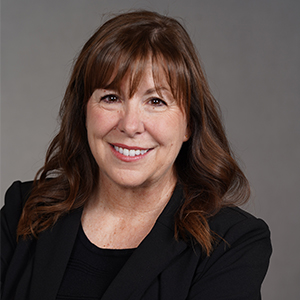HousingWire Editor in Chief Sarah Wheeler sat down with Shayan Hamidi, CEO of Rechat, to talk about how he picks the right problems to solve, the incredible pace of AI innovation, and finding the joy in work.
Sarah Wheeler: Let’s talk about your background, because you have both technology and real estate experience.
Shayan Hamidi: I studied computer science, economics and math and my background is technology. I have founded several startups, but my previous startup in Canada was a tech company in real estate. We were kind of the Zillow of Canada — we were the first platform to open up access to real estate data. And I got into it because I thought that experience was broken for the consumers, but immediately realized that agents play a key role in that picture. And their experience is also highly fragmented and broken, and that’s what bubbles up to the consumer experiences.
So I got into the real estate business from then on. This is from 2009 — I opened up a high-tech real estate brokerage with actual agents, working through transactions day in day out and really understanding what processes look like. It became one of the fastest-growing brokerages at the time in Canada, and then I sold that in 2014, and moved to the U.S.
It was very obvious that the brokerage of the future and the agent of the future need to be tech-enabled. I transitioned into starting Rechat: it’s a technology company but I think it’s extremely important to have folks that have actually been part of the transaction. Real estate, from the outside, feels like it’s not that complex, so you have tech folks come in trying to solve problems without truly understanding those problems.
SW: What differentiates your tech?
SH: I think technology and design are there to help solve the problem and the best technology and the best design are the ones you don’t actually realize are there. You are just experiencing them as you do what you need to do. That’s our point of view, which then impacts the way we go about architecting our technology and our product. So we apply systems thinking — when you think of your product within a bigger system and take one holistic approach to it.
A lot of folks in real estate technology focus on solving a lead-generation problem, or they focus on creating a CRM system. What they end up doing is having a selection of tools, but it’s highly fragmented. They’re very much focused on solving those specific problems, whereas our focus is on the bigger experience. And when you start thinking of the bigger picture, you’re solving a different type of problem, which gives you a different point of view.
For us, it’s all about creating one streamlined experience for whatever that agent is doing with buyers or sellers. Based on that, we use a ton of mobile, because our agents are always on the go. We found that agents are spending close to 80% of their time just doing administrative work. That’s a lot of rekeying of the same information! So we focus on what kind of databases we have that can be shared amongst different experiences to avoid re-keying of data.
SW: How do you leverage artificial intelligence?
SH: Saying AI is like saying software — it’s a generic term. We have used AI for quite some time, but I do think that generative AI will have a huge impact in the industry. Last year was actually fascinating, because obviously some of the stuff we see with AI is just mind-blowing. I’ve been in technology forever and I’ve never seen these sorts of things. But it truly is day zero. You see very little production-grade products out there, because it’s very expensive and hard to train the models to get them to do what you want to do.
We work directly with OpenAI and some of the challenges that we have or other developers have — literally we wake up in the morning and there’s a new thing that just released that solves that problem. And the documentation is not even available for it. So when we talk about bleeding-edge technology — some of this is happening in real time.
I think if you want to innovate, you need to be able to think long-term. I don’t think anyone’s ever innovated in the short-term. So you need to be able to have the appetite for that: be willing to take the risks and be willing to be patient for quite some time. And I think AI is one of those things. You can do some fun, cool stuff with it very quickly, but then if you want to start doing meaningful things, it’s a big long-term investment, at least today.
SW: What are you doing that you consider innovative?
SH: You asked about AI — we’ve heavily invested in creating Lucy, our AI copilot, as an assistant. We recently launched just a few months ago and I would say she’s the most advanced assistant an agent can have. She does pretty much all the stuff you can do with chatGPT, from writing a listing description to creating a social media posts and those sorts of things. But I think where we had a breakthrough is we were able to get her to not just create things, but also execute on tasks. And that’s a very important transition.
She actually does things that are way beyond what you could do in a basic chatGPT. And it could literally save hours of an agent’s time during the day. This can be creating full marketing campaigns for the agent. She can create a website and actually make it go live. She can run complicated ad campaigns and actually optimize those on a more real-time basis than an agent would ever do. She can help with the transaction process for the agent.
Lucy works on mobile, on the computer, and she has access to all the different tools within Rechat. And she understands personalization, so Lucy knows your preferences on fonts and colors, on your branding. She knows what region you’re in and what compliance elements you need to take care of. And then she works as an internal concierge for the agents.
I think real estate is about to have its Netflix moment. Right now, if I go to Netflix, it’s highly personalized — my experience is very different from yours. But real estate is not really personalized right now. The agent and the buyers get all these alerts for listings, but 90% of them are irrelevant. Now with computer vision, with AI, you can get much better curation of what’s coming to you.
SW: Are you surprised at the pace that all of this is happening?
SH: I don’t think anybody in the world expected things to move as fast as they’re moving. And you can measure that on many different levels. We’ve never seen extreme computing the way it’s happening right now. It’s not just the pace of the product coming out, or the pace of the innovation — it’s the amount of energy and resources that are being consumed. And it’s just going to keep getting faster now.
SW: As a company, how do you keep up with this furious pace?
SH: I think it’s very easy to get distracted and get excited and run after many things, especially if you are in a position that you can afford to do a little bit of that. As a company, we’re profitable, so that gives us room to think about what we can do. And having talented people — when you have those two things available, you can easily be distracted.
So I think part of the answer is to keep focusing on the problem set. We apply this methodology that came out of Harvard years ago called “jobs to be done.” I want my energy to be up, so I drink coffee. When you think about what listing agents do, for instance, their job is to sell that listing for the best price. Part of that job is to take the listing, package it, market it and generate interest around it. Then you get offers, negotiate and close the offer. But the goal wasn’t ever to create a marketing plan.
So we look at how we can solve this in a way that doesn’t require so much from the agent. And that’s where Lucy comes in. She knows the best practices of marketing — she’ll handle all of that to get to the end goal: selling the house.
SW: What keeps you up at night?
SH: Velocity and making sure that our momentum is there — just a sense of urgency.
SW: What gets you up in the morning excited about what you guys are doing? What are you optimistic about as you look at the future?
SH: When I sold my last company and exited, one of the main reasons was because I was not waking up as excited anymore. And it had to do with the type of problems I was solving. The problems were a lot more around financing and operational. I’m a pretty passionate person and I’ve tried to hire people that are passionate about what they do. And we get to be creative.
I’m the type of person that quite frankly, I never leave work. Maybe it’s good, maybe it’s bad, but I’m on 24/7. I realized this early on and thought: I’d like to enjoy life, so how can I be on 24/7 and not be miserable? And I think it comes back to your people, to your culture, and to the problems you get to solve during the day. And if those three are there, going to work is like going to play — it’s fun and engaging.






